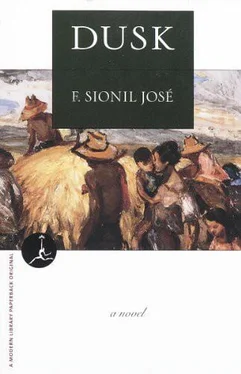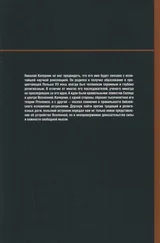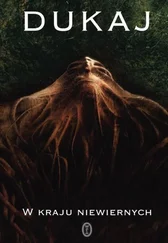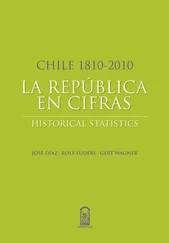The driver turned away. He stirred the molasses and added water and bran in the trough where Kimat was feeding. In the thatch-roofed house beyond them, a stove fire had been kindled and the driver’s wife was preparing the evening meal. To her, the man said aloud: “Be sure you include an additional plate for our visitor,” to which Istak said quickly: “No, you have already been very kind. I must be on my way.”
“You cannot travel in the dark,” the driver said.
Istak did wait, though, for a plate of hot rice and a piece of roasted dried meat. While he waited, the rig driver told him about the village, how his villagers had come down, too, from the north — Paoay — and how they had claimed the forest. Large patches of jungle still covered Pangasinan, and the natives were too lazy to clear them. And there were no more tributes or excessive taxes to pay. Surely, the future was better here.
Istak mounted Kimat again. The November wind was balmy and he felt so refreshed he was sure he could travel the whole night. The pain in his buttocks and at the base of his spine was no longer as sharp as it had been earlier in the day. Now, he was familiar with the rhythm of the horse, its even pace. He rarely used his heels to prod the animal. He had learned, too, of Kimat’s signals, how his head drooped when he was tired, how he raised his head when he tensed to alien sounds. Kimat seemed almost human in his expression of gratitude — he would nudge Istak after being given a piece of sugar cake or merely patted on the neck.
Still no trace of the Americans. Soon he would reach the sea. How quickly he had traveled, unlike the time when they came down the Ilokos in a caravan. Kimat made all the difference. The mountains were closer, the wooded hills and long stretches of vacant land that were cattle ranches. In the coming dusk, the mountains were caparisoned with the soft luster of gold and blue, and high up in the ranges toward the land of the Igorots, clouds of deepening purple were impaled by peaks. He was sure he would find the trail and overtake them — they were such a big group, they would not be able to travel as fast as he. Indeed, the strongest man is the solitary man.
In the late afternoon of the fourth day, he saw the coast. He was up in the hills. Tension tightened the air. He knew this by the manner in which the people of these shallow valleys responded to his questions. Anytime now, he should cross the path of the president — or the Americans. The coast was still far away, and the towns along them were a good half day’s ride.
It was evening when he reached the village where the road branched from Pangasinan — a narrow road flanked by weeds and bananas. He entered it at a walk, hoping there would be someone who could lend him a pot and a stove to cook his supper.
No dog growling from the houses, no poultry disturbed in the roost — just sepulchral quiet. The village was empty; either the Americans had just passed or were coming. He must move on.
The road entered the open fields, which had already been harvested, and the harvest was spread in the fields to dry.
Kimat was tired, so he dismounted and again led the horse farther up and away from the road. He laid his saddle on the stubble of hay and promptly went to sleep.
He thought it was Kimat who woke him up with his grunting. The animal stood still — his head raised in the air, his cars pointed upward. Then Istak heard not just the grunting of horses but the creaking of wheels. He turned to the left and there, outlined against the night sky was a column — men on big horses, bigger than Kimat, cannon trailing their huge wagons, men with packs on their backs. Americans.
His feet grew cold and his throat went dry. He crouched and held the animal tightly lest it make a sound. But Kimat did not move.
It seemed as if the column would march on forever — the shuffling of feet, the strain of wagons, of gear. But in time the column ended. There must have been five hundred men. Istak mounted his horse and cut swiftly across the fields. He must out-race them in a wide arc, through clumps of bamboo and along irrigation ditches. Kimat seemed to understand and he ran faster than before. Istak crouched, the wind rushing toward him, cold and swift as a whiplash. He paused briefly to let Kimat drink when they forded a stream.
It was dawn when he reached Bauang. He remembered the town: nothing had changed. He rode slowly; he had left the Americans behind. It was quiet and at first, until he got to the church, Istak thought the people were still asleep. There, hanging from the branches of the acacia tree were three men. In the early light, there was no mistaking them — Filipino soldiers in their rayadillo uniforms, their bare feet tied with wire, as were their hands. The church, the whole town was empty. He must get out quickly. He backtracked to a narrow sidestreet, and it was then that, from his right, he heard a loud command: “Halt!”
He did not have to turn; that was an American voice. Digging his heels into the sides of Kimat, he dashed through an empty yard onward to the road beyond it. Kimat responded with a great surge of strength.
The shot sundered the morning quiet and for an instant, he thought: I am dead — but he felt no scaring impact against his flesh, no blackness claiming him. Kimat ran on, across open fields, through a barrier of madre de cacao trees, and behind it, more fields, and beyond that, a sitio of some five or six huts.
By then, Kimat had slowed and though Istak prodded the animal, he would no longer run. His canter turned into a slow walk, and just as they entered the village, the animal stopped, shuddered, and collapsed.
Istak scrambled down and looked at Kimat. The horse had been hit — the rump was bleeding and blood trickled down the leg of the poor horse. Istak fondled his head; Kimat’s breath come slow, then he lay still.
Istak turned to the houses before him. People had seen him for they now came forward.
“The Americans,” he told them quietly, “they shot my horse. It is dead. You can have it for meat.” He patted the animal.
They gave him food and asked where he came from and where he was going. He told them the usual story, then asked why there were no people in town. He knew the reason but he wanted them to explain. The president had passed through that afternoon with his party and the people had come out in the streets, rejoicing. Surely, the Americans were closing in.
He had missed the president by a day, a few hours at the most. He thanked them for the meal and wanted to know if there was a horse he could buy. There was none. He must not waste time; now he must continue on foot.
The quickest, shortest way was through the towns. When his legs felt numb and he could no longer run, he walked. Dogs followed and snapped at him, but they remained quiet after he had recited his oración for dogs. Always, he asked in each village for a horse he could buy, but there was none and the calesa drivers whom he hired could take him only as far as the next town. At times, he left the road, which was rutted with the deep imprint of bull-cart wheels during the rainy season, and went to the beach, where the sand was firm. Walking there was easier but the beaches were not always sandy. The shoreline was often rocky and it sometimes dropped, rugged and sharp, to the sea. He returned to the road, parts of which were not cobbled for carriages. If only he did not tire or go hungry! He had to pause for naps, then walk on, half asleep.
Toward midafternoon, having slept so little the previous night, he paused again for a nap, hoping it would not last too long. An acacia tree at the edge of a village shaded him from the unrelenting sun. When he woke up, children were around him, waiting.
They laughed when he stirred. He asked them where he was. Close to the town of Bangar, they said. Did they see the president and his party pass? Yes, they said, the other day. Were the Americans coming?
Читать дальше












